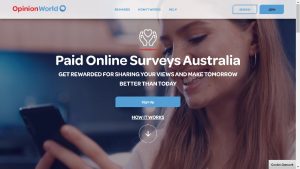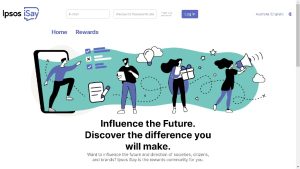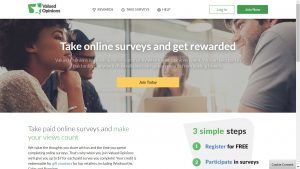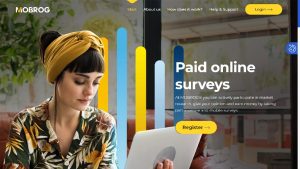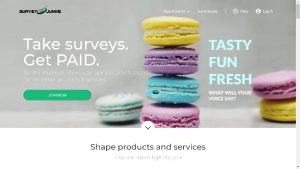In Australia, the best paid focus groups serve as dynamic platforms, fostering rich conversations and uncovering nuanced viewpoints that help shape products, services, and societal changes.
Focus groups are a safe haven of shared dialogue, inviting individuals from various backgrounds, ages, and experiences to converge. These gatherings offer a melting pot of ideas, experiences, and learnings.
From busy Sydney to the cultural hubs of Melbourne, focus groups in Australia serve as catalysts for innovation, influencing industries spanning from technology to healthcare, and everything in between.
Join These Best Paid Focus Groups To Get Started
OpinionWorld
Redemptions: Gift Cards, PayPal
Minimum redemption: $10.00
Surveys pay: $0.50 to $3.00
Read our OpinionWorld review here or join here.
Ipsos iSay
Redemptions: Charity, Gift Cards, PayPal
Minimum redemption: $20.00
Surveys pay: $1.00 – $15.00
Read our Ipsos iSay review here or join here.
Valued Opinions
Redemptions: Gift Cards, Charity
Minimum redemption: $20.00
Surveys pay: $1.00 - $7.00
Read our Valued Opinions review here or join here.
Mobrog
Redemptions: PayPal, Gift Cards, EcoMatcher
Minimum redemption: $8.50
Surveys pay: $1.00 - $5.00
Read our Mobrog review here or join here.
Survey Junkie
Redemptions: PayPal, Amazon, Gift Cards, Charity
Minimum redemption: $5.00
Surveys pay: $0.50 – $3.00
Read our Survey Junkie review here or join here.
What Is A Paid Focus Group?
A focus group is a qualitative research method that involves a small, diverse group of individuals gathered to participate in a guided discussion about a particular topic, product, service, or issue.
Typically facilitated by a moderator or researcher, the aim of the best paid focus groups is to explore and understand participants' attitudes, perceptions, opinions, and experiences related to the subject under investigation.
The dynamic nature of a focus group encourages open dialogue and interaction among participants, allowing researchers to observe not only what people say but also how they express their thoughts and engage with others. This method is widely used in market research, product development, social sciences, and other fields to gain in-depth insights that might not be captured through quantitative approaches alone.
The information collected from paid focus groups can be instrumental in informing decision-making processes, refining strategies, and enhancing the understanding of target audiences.
Who Can Join A Paid Focus Group?
The best paid focus groups aim to gather diverse perspectives, so they often welcome individuals from various backgrounds, demographics, and experiences. The specific criteria for joining a focus group can vary based on the research objectives. Participants may be selected based on factors such as:
Demographics: Age, gender, income level, occupation, education, ethnicity, etc., depending on the target audience for the research.
Specific Traits: People with particular experiences, behaviors, or attitudes related to the research topic.
Consumer Habits: Individuals who use certain products/services or belong to specific consumer segments.
Geographic Location: Some paid focus groups might be location-specific, targeting people from particular regions or areas.
Professions or Expertise: In some cases, professionals or individuals with expertise relevant to the research topic might be sought.
Ultimately, the criteria for joining a paid focus group are set by the researchers or organizers conducting the study, aiming to gather a diverse yet relevant group of participants to provide comprehensive insights into the topic being explored.
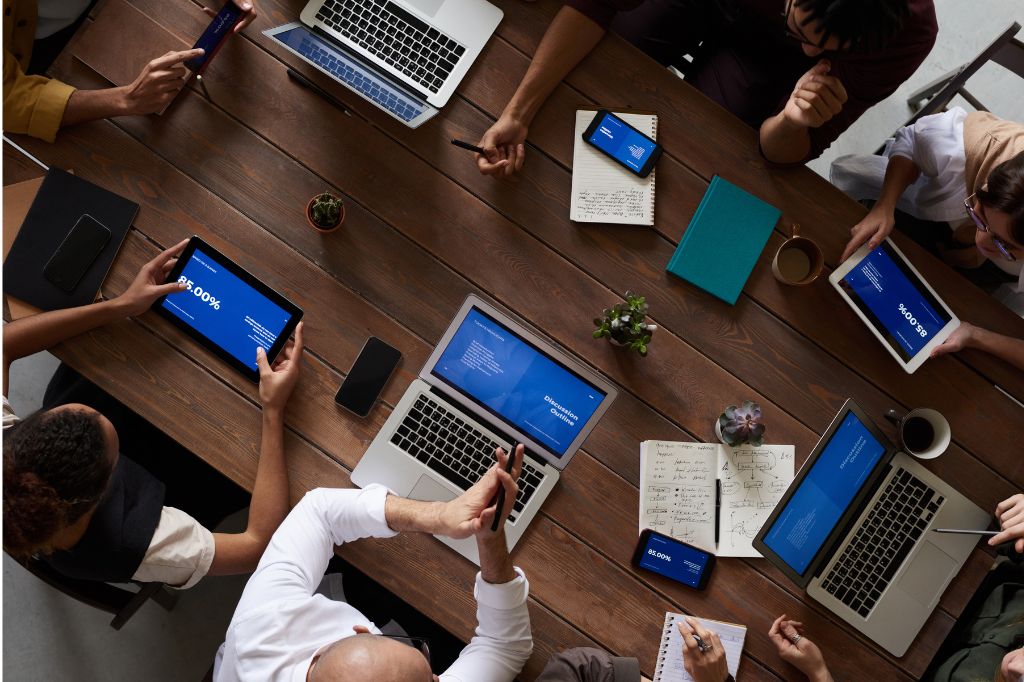
Why Should I Join The Best Paid Focus Groups?
Joining a paid focus group can be beneficial for several reasons:
- Share Your Voice: Express your opinions on a specific topic or product, contributing to research that could influence developments.
- Influence Decision-Making: Your input could directly impact the design, marketing, or improvement of products, services, or policies.
- Meet New People: Engage with individuals from diverse backgrounds, gaining insights and perspectives you might not have encountered otherwise.
- Learn and Discover: Participating in a paid focus group might expose you to new ideas, trends, or information.
- Contribution and Impact: Your participation helps researchers gather valuable insights, making a tangible contribution to the research process and to society.
- Compensation: Some focus groups offer compensation, whether in the form of cash, gift cards, products, or other incentives.
- Empowerment and Engagement: Being part of a paid focus group can give you a sense of empowerment in discussions that matter to you.
- Networking Opportunities: Engaging with researchers or other participants might lead to networking opportunities or connections within industries.
Ultimately, joining a focus group allows you to be an active participant in discussions that could shape future outcomes while offering the chance to learn, connect, and contribute to meaningful research efforts.
Getting started
Finding a Focus Group
Joining a focus group involves several steps, and there are a few ways to get involved:
- Research Companies: Look for market research companies, both local and national, that conduct focus groups. Check their websites or contact them directly to inquire about joining their participant database.
- Online Platforms: There are online platforms that recruit participants for paid focus groups. Websites like FocusGroup.com, FindFocusGroups.com, or local classifieds may advertise opportunities. Sign up, create a profile, and keep an eye out for suitable studies.
- Social Media and Community Boards: Some researchers or organizations post focus group opportunities on social media platforms or community boards. Follow relevant groups or pages, or join local community forums where these opportunities might be shared.
- University Research: Universities sometimes conduct focus groups for academic research. Check university websites, bulletin boards, or contact research departments to express interest in participating.
- Referrals: Sometimes, participating in one paid focus group can lead to invitations for future ones. If you've been part of a focus group before, inquire if the organization conducting it has other studies available.
Joining a Focus Group
Once you've found a potential opportunity:
- Register or Apply: Follow the instructions provided by the research company or platform. This might involve filling out a form, creating a profile, or answering screening questions.
- Screening Process: Researchers often have specific criteria for participants. You might need to complete a screening questionnaire or interview to determine if you're a good fit for the study.
- Selection and Participation: If selected, you'll be notified about the date, time, and location of the focus group. Participation can be in-person, online, or a combination of both.
Remember, focus group opportunities can vary in frequency and availability, so it might take some time before you find one that matches your profile and interests. Additionally, be cautious of scams and never provide sensitive personal information without confirming the legitimacy of the research opportunity.
What Are The Advantages Of The Best Paid Focus Groups?
Focus groups offer several advantages in gathering qualitative insights:
- Rich, In-depth Insights: They allow for detailed exploration of participants' thoughts, perceptions, and attitudes, providing nuanced insights into complex topics.
- Group Dynamics: Group interactions can stimulate discussions and bring out varied viewpoints, uncovering perspectives that might not emerge in individual interviews or surveys.
- Real-time Observations: Researchers can observe non-verbal cues, body language, and group dynamics, adding depth to understanding participants' reactions.
- Flexibility and Adaptability: They allow for flexibility in the discussion flow, enabling researchers to adapt questions and probe deeper into interesting points.
- Cost-effectiveness: Compared to other qualitative methods like one-on-one interviews, paid focus groups can be more cost-effective.
- Quick Turnaround: They often yield insights relatively quickly, making them suitable for rapid feedback collection, especially in product development or marketing.
- Diverse Perspectives: They facilitate the gathering of diverse opinions from participants with different backgrounds and experiences, offering a holistic view of the topic.
- Iterative and Exploratory: Ideal for exploratory research or generating hypotheses that can later be tested through quantitative methods.
- Participant Empowerment: Participants often feel empowered as their opinions are valued, contributing to a sense of ownership in the research process.
Each advantage underscores the unique value focus groups bring to understanding people's behaviors, preferences, and perceptions, making them a valuable tool in various research contexts.

What Are The Disadvantages Of Paid Focus Groups?
While focus groups offer valuable insights, they also come with certain limitations:
- Group Dynamics: Dominant personalities or groupthink can influence discussions, leading to certain voices overpowering others and potentially skewing the findings.
- Limited Sample Size: The number of participants is typically small, so the insights might not represent the broader population accurately.
- Moderator Influence: The moderator's skills and biases can unintentionally steer discussions or influence participant responses, affecting the objectivity of the data collected.
- Difficulty in Recruitment: Finding and assembling a diverse and representative group can be challenging, potentially leading to a lack of varied perspectives.
- Social Desirability Bias: Participants might modify their responses to align with perceived societal norms or expectations rather than expressing genuine opinions.
- Time and Resource Intensive: Organizing and conducting paid focus groups require significant time, effort, and resources.
- In-depth Individual Insights: Unlike one-on-one interviews, paid focus groups might not delve deeply into individual perspectives or personal experiences, potentially missing nuanced personal narratives.
- Data Analysis Complexity: Analyzing data from focus groups, especially with diverse opinions and interactions, can be complex and subjective, requiring skilled interpretation.
- Difficulty in Controlling Variables: Controlling external factors or ensuring consistent conditions among different paid focus groups can be challenging, potentially affecting the reliability of findings.
Understanding these disadvantages helps researchers navigate the limitations of focus groups and consider complementary methods or strategies to mitigate these challenges for more robust research outcomes.
What Rules Govern Paid Focus Groups?
Focus Groups operate differently in every company, but you can be more assured of integrity and credibility if you verify whether the company is a member of Australian Data and Insights Association (ADIA), (formerly the Association of Market and Social Research Organisations (AMSRO)) and of the Research Society,
FAQ: Best Paid Focus Groups Australia
How long do the best paid focus groups run for?
You can expect to be engaged for 1 to 2 hours per focus group. You will be reimbursed for your time on a fixed rate. snacks may be provided.
How many people are usually in a paid focus group?
Interviewees usually number 8 to 10 people and then add on a Facilitator and a Notetaker.
How many paid focus groups might I be invited to?
There is no certain answer. You may not fit any focus group demographics or all the panels may be full right now.
How much can I earn from the best paid focus groups?
Per focus group, it can be possible to earn $80 onwards and up to $200, depending on your demographics/expertise.

